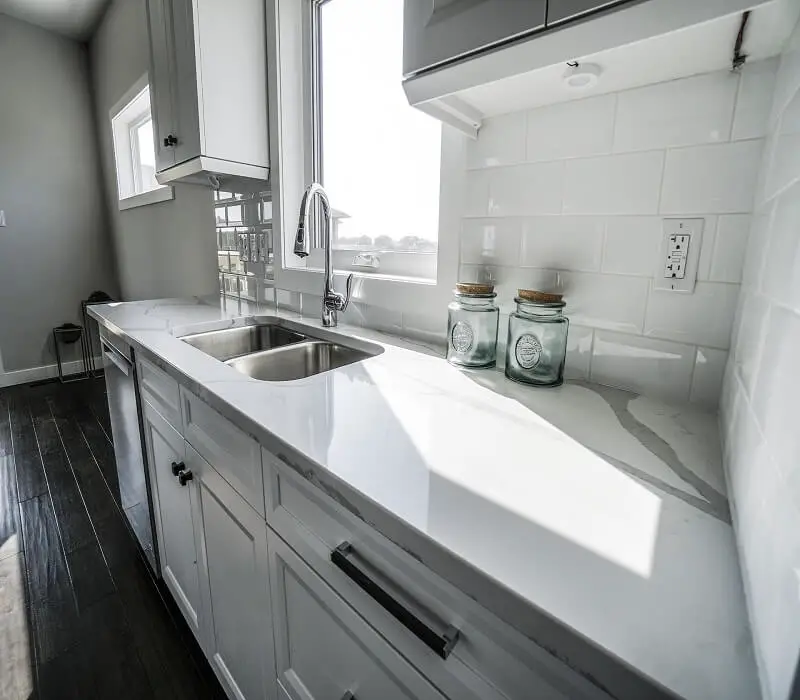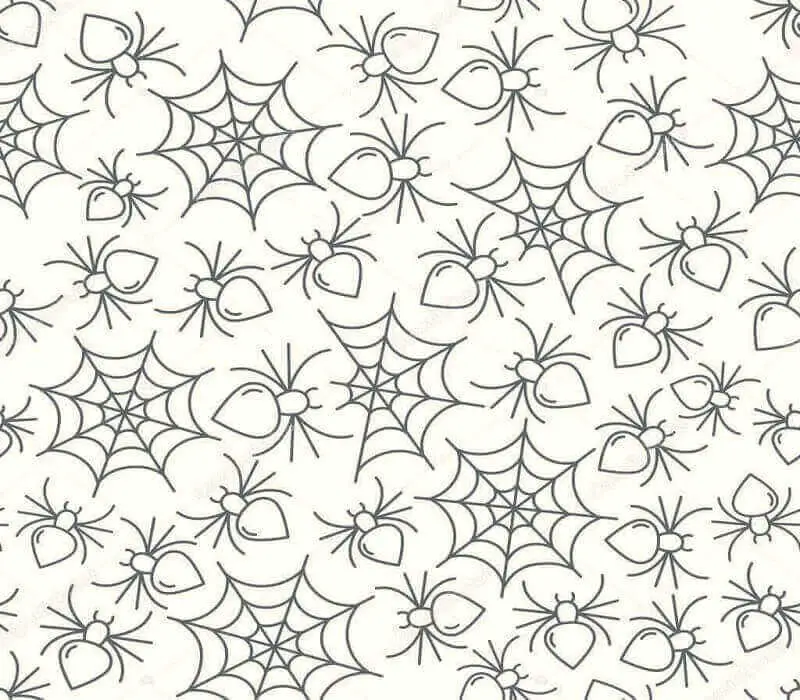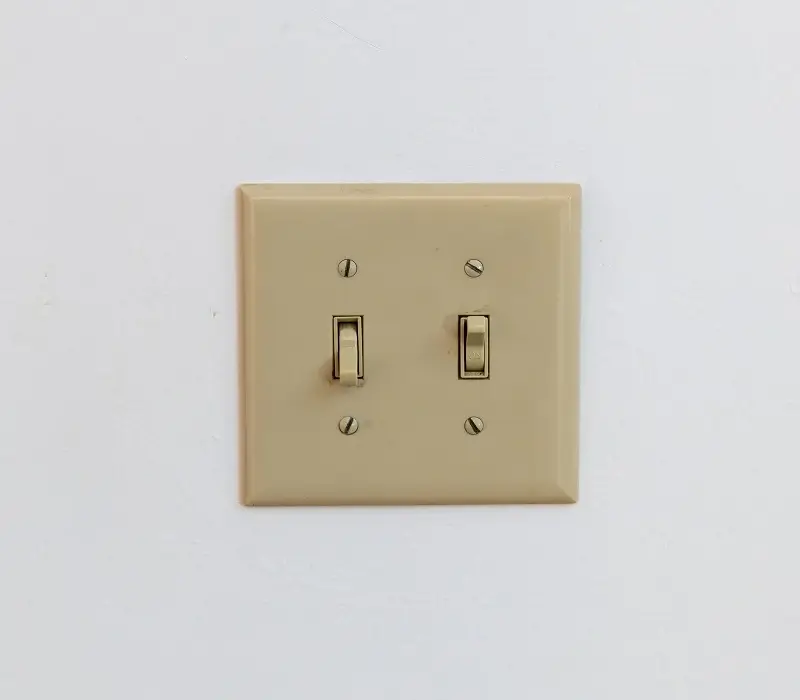
A white granite countertop is what many homeowners opt for when looking for a durable yet elegant counter. Whether it’s for the kitchen, bathroom, or any other space, this type of counter will fit perfectly well. It also offers plenty of other advantages, making it an excellent investment. Now we will discuss how to remove stains from white granite countertops.
The thing is, granite is a porous stone. In other words, accidental spills on this sort of light-colored counter can quickly turn into ugly stains. And the only way to keep these counters stain-free is by putting the right cleaning product to work.
That’s why we’ve put together a list of some fantastic cleaning hacks for granite surfaces. These approaches will keep your white counter sparkling without the need for elbow grease.
Table of Contents
How to Remove Stains from White Granite Countertops?
Before you use any cleaner to remove a stain from your white granite countertop, you need to identify the nature of the stain.
To put it another way, each type of stain requires a different cleaning method. Below, you’ll find different stain categories and the product you need to get them off your white granite countertop.
How to Clean a Fresh Stain
Most of the time, you don’t need anything abrasive to get rid of a fresh stain. All you need is warm water and a little mild soap. Use a sponge to clean up the stain by dipping it in the solution. Then rinse your granite counter, and you’re done.
But what if the stain turns out to be stubborn? In this scenario, you’ll have to follow one of the methods below.
For Greasy Stains Such as Cooking Oil, Here is What You Should Do!
According to cleaning expert Leslie Reichert, rubbing alcohol is a fantastic product for removing oily stains.
Soak a microfiber cloth or a cotton ball in rubbing alcohol and start dabbing the affected area until it is wet. Allow the product to break down the oil before wiping it away with soapy water.
For those who’d like to avoid such a stain in the future, the main culprits behind oil-based stains are grease, cooking oil, peanut butter, and cream.
Of course, there are many products that can cause such a stain, but the ones we listed are the most common.
What about Organic Stains? Are They Permanent?
I bet that headline scared you. Don’t worry. Organic stains aren’t permanent. They can be removed using products you probably already have under your kitchen sink.
Remark: Some of these stains might require multiple attempts to be eliminated.
For individuals curious about which stains are organic, this type of stain can be caused by your morning cup of coffee, tea, mustard, etc. Fortunately, they’re usually simple to remove and require less elbow grease than other stains.
OK, enough blabla. Here is what you should do to clean your white granite countertop from organic stains. For every two parts of baking soda, add one part of 12% hydrogen peroxide. This ratio will allow you to form a thick paste.
Spread the paste all over the affected area and leave it there for a few minutes before rinsing it with plain water.
What if the organic stain resists this approach? In this case, we’re going to address it using the same ingredients but in a different way.
After creating the consistent baking soda paste with hydrogen peroxide, spread it over the stain, cover it with a paper towel, wrap it with plastic and leave it there overnight.
The next day, you’ll find that the mixture has hardened. Use a scraper or a credit card to take it off your granite counter. Then rinse the whole surface to take off all the leftover residue.
Are Inorganic Stains as Simple to Remove as Organic Ones?
Honestly, inorganic stains are also easy to remove. They just require a small amount of hydrogen peroxide or rubbing alcohol based on the nature of the stain. A quick note: inorganic stains are the ones caused by non-biological products.
For example, ink stains, which belong to the inorganic category, can be removed with rubbing alcohol. Simply soak a cotton ball in rubbing alcohol and keep dabbing the stain until it’s lifted off your granite countertop.
On the other hand, for different types of inorganic stains, such as dirt, dye, and so on, hydrogen is the best candidate for getting rid of them. In a bowl, mix 1/2 cup of hydrogen peroxide, 1 cup of flour, and 2 tbsp of cold water.
Apply the mixture to the discolored area of your white granite surface, and leave it there for a few minutes to hours, depending on how deep the stain has penetrated. After that, simply wipe it off using a microfiber cloth.
Granite Poultice: The Alternative Option to DIY Techniques
We recommend using granite poultice for stubborn stains that have withstood all DIY methods. Apply your chosen poultice to the stained area and leave it for 24 to 48 hours.
Don’t forget to apply a good coat of poultice to the affected area. Once the poultice has dried, pick up a scraper or a credit card and gently scrape it off your white granite countertop.
If the first application doesn’t remove the stain, you can repeat this operation one more time by following the same steps.
Is There Any Chance to Repair an Etched White Granite Countertop?
Unfortunately, etching is not the same as a typical stain. Etching happens when the chemical composition of the granite surface changes.
This issue occurs when the granite is exposed to acidic substances like vinegar, lemon juice, acidic cleaners, or alkaline compounds such as ammonia, bleach, etc.
You can repair an etched granite countertop on your own. Yet, you need to have prior expertise in order to fix the problem correctly.
Thus, if you think you’re up for the challenge, we recommend reading this guide by Hunker, where they break down the steps required to solve the etching issue.
On the other hand, if you see that you’re not up for this task, we recommend reaching out to granite professionals.
It will indeed be more costly than doing it yourself, but you can be sure that your countertop will look as good as the day it was installed.
How to Know When It’s Time to Seal Your Granite Countertop
Stains on your granite countertop form when substances penetrate the granite’s tiny pores.
In other words, once these materials seep into the stone’s pores, you’ll notice those unsightly stains on your white granite surface.
Granite counters need to be sealed every few months. And to know whether it’s time for you to seal your granite counter, pour some water over the granite surface and see if it’s instantly absorbed.
If, when you pour water on your granite countertop, the water starts to disappear and a dark mark or ring forms, then it’s time to seal your counter.
Remark: Make sure to test your selected cleaning agent on an inconspicuous section of your granite countertop prior to applying it to the stain.
Conclusion
Here you have it, an in-depth guide on how to remove stains from white granite countertops. We hope the information we’ve mentioned in this article has helped you in cleaning and maintaining your granite countertop sparkling.
Also, if you got in your pocket a special cleaning hack that isn’t mentioned above, feel free to share in the comment section below.
How do I get my granite white again?
To get your granite white again, you can mix a solution of water and rubbing alcohol and apply it to the stained area. Leave it on for several minutes, then rinse with water and dry with a clean cloth. You can also try using a granite-specific cleaner or a poultice made from baking soda and water.
Can stains come out of granite?
Yes, stains can come out of granite with the right cleaning and treatment methods. The success of stain removal depends on the type of stain and the length of time it has been present, so it’s important to act quickly and use the appropriate cleaning solution for the specific type of stain.
Why is my white granite staining?
White granite can stain due to its porosity and susceptibility to absorbing liquids, oils, and other substances. If the granite is not properly sealed, it can be more prone to staining. Additionally, acidic substances like vinegar and lemon juice can etch the surface of the granite, making it more vulnerable to staining.
Do white granite countertops stain easily?
White granite countertops can stain more easily than darker granite countertops because they have a higher level of porosity, which means they can absorb liquids more readily. It’s important to clean up spills immediately and to regularly seal your white granite countertops to help prevent staining. Using a pH-neutral granite cleaner and avoiding acidic substances can also help keep your white granite countertops looking their best.
Can baking soda damage granite?
Baking soda is generally safe to use on granite surfaces and can help remove stains and odors. However, using abrasive scrubbing pads or applying too much pressure when using baking soda can scratch or damage the surface of the granite. It’s best to use a soft cloth or sponge and to avoid using any harsh or acidic cleaners on your granite surfaces.
We're an affiliate
We hope you love the products we recommend! Just so you know, CleanyHome.com is a participant in the Amazon Services LLC Associates Program, an affiliate advertising program designed to provide a means for sites to earn advertising fees by linking to Amazon.com.


